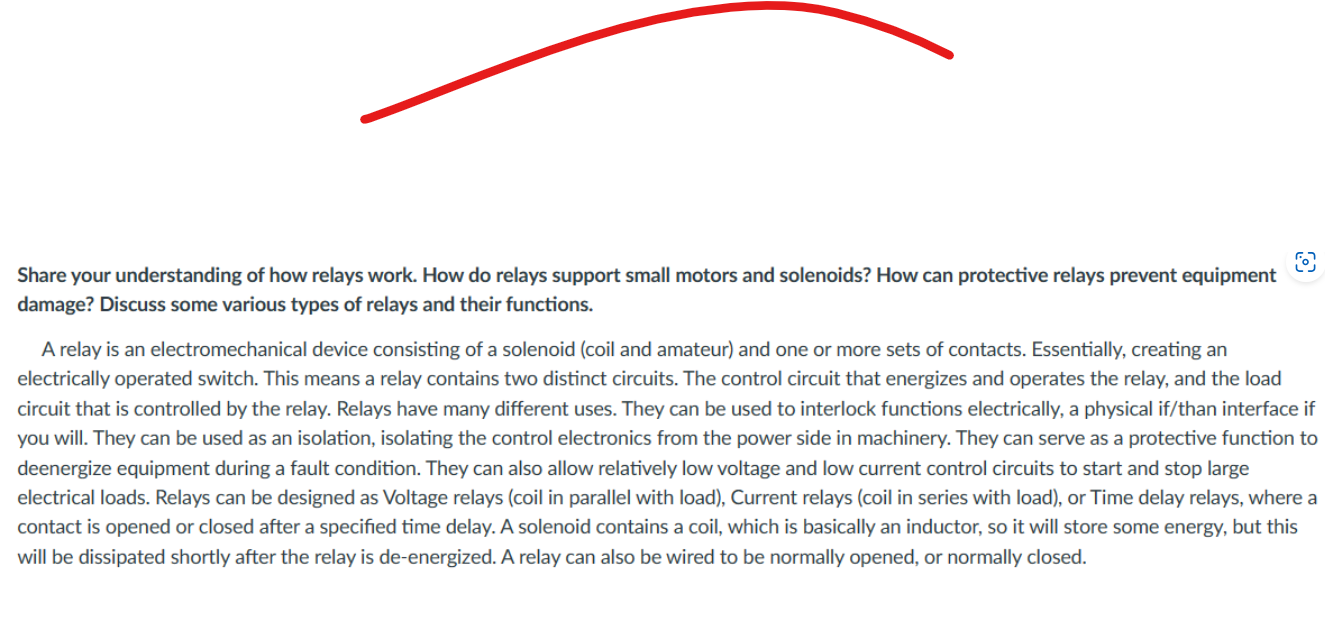Answered step by step
Verified Expert Solution
Question
1 Approved Answer
Share your understanding of how relays work. How do relays support small motors and solenoids? How can protective relays prevent equipment damage? Discuss some

Share your understanding of how relays work. How do relays support small motors and solenoids? How can protective relays prevent equipment damage? Discuss some various types of relays and their functions. A relay is an electromechanical device consisting of a solenoid (coil and amateur) and one or more sets of contacts. Essentially, creating an electrically operated switch. This means a relay contains two distinct circuits. The control circuit that energizes and operates the relay, and the load circuit that is controlled by the relay. Relays have many different uses. They can be used to interlock functions electrically, a physical if/than interface if you will. They can be used as an isolation, isolating the control electronics from the power side in machinery. They can serve as a protective function to deenergize equipment during a fault condition. They can also allow relatively low voltage and low current control circuits to start and stop large electrical loads. Relays can be designed as Voltage relays (coil in parallel with load), Current relays (coil in series with load), or Time delay relays, where a contact is opened or closed after a specified time delay. A solenoid contains a coil, which is basically an inductor, so it will store some energy, but this will be dissipated shortly after the relay is de-energized. A relay can also be wired to be normally opened, or normally closed.
Step by Step Solution
There are 3 Steps involved in it
Step: 1

Get Instant Access to Expert-Tailored Solutions
See step-by-step solutions with expert insights and AI powered tools for academic success
Step: 2

Step: 3

Ace Your Homework with AI
Get the answers you need in no time with our AI-driven, step-by-step assistance
Get Started


